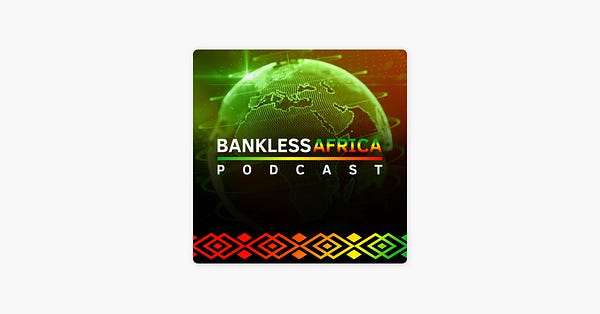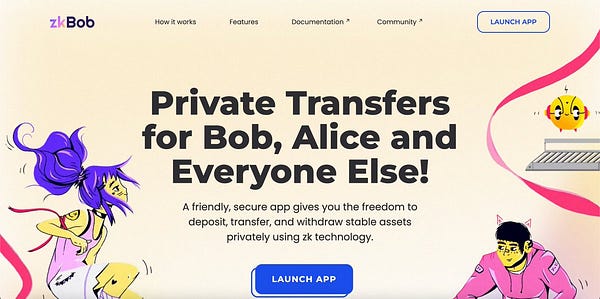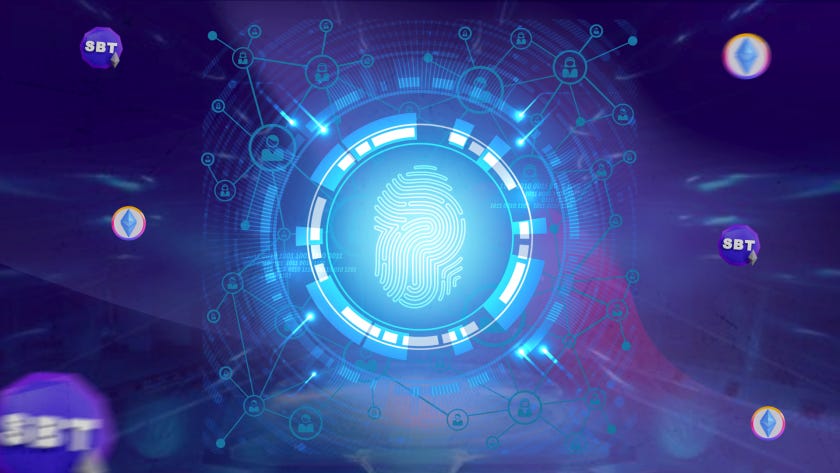How Blockchain will change the Concept of Trust | Bankless Africa Newsletter
Stay up to date with Web3 alpha, insights, news and opinion in and around Africa and the Diaspora. Subscribe Now
Hello, Bankless fam!
It’s the end of another season, and we are about to head into our gap week! We hope you will have a relaxing time away from the DAO and enjoy perhaps touching a little grass.
Blockchain technology offers numerous benefits for individuals and businesses, one of these benefits is the potential replacement of third parties and middlemen used in our conventional financial institutions. So in this week’s editorial, Quilla walks us through how blockchain technology can change the way we perceive trust amongst each other online. We trust it’ll be worth your time.
We had the founder and managing director of the DeFi Africa Network, Sahabia, on this week’s podcast episode, where he talked to us about Defi Africa. It was a fun time as he shared their mission, where they are right now, where they are striving to be, and the problems they aim to solve.
Binance continues to do great things again through the Binance Charity, which partnered with Utiva to educate 50,000 youths across Africa. To end off our educational stride, you can learn more about NFT staking and how it works with the help of the learning centre.
Decentralization and humor is after all the best medicine so be sure to take a peek at this week’s meme corner, have a hearty laugh and enjoy a DAO free week.
Before you move on to the meaty parts of this newsletter, there’s a 3-minute user research form that we’d like you to fill. We want to know how to best improve the newsletter, let us know what you think by filling this form in with your reviews & suggestions.
Siyan’amkela! (Welcome)
Contributors: Quilla, Angelspeaks, Vibrantty, Phina, Starfly, Vaynaic, Paulito, E_praiz, Misspurple, Yofi
🏴 Inside Bankless Africa
Listen To The Newest Episode Of The Bankless Africa Podcast
Like, Share, Retweet, and Subscribe to our podcast.




📰 News & Opinion In and Around Africa
Pan-African crypto exchange Yellow Card wins virtual asset license.
Out of all African countries, Botswana happens to be the first to issue a Virtual Asset Service Provider (VASP) license from the Non-Bank Financial Institution Regulatory Authority (NBIFIRA) of Botswana to crypto exchange, "Yellow Card "
With this new license, Yellow Card customers have liberty to buy and sell Bitcoin, Ethereum and the USD stablecoins with the local fiat currency, the Botswana Pula.
Furthermore, due to the travel rule introduced by the Financial Action Task Force, Yellow Card complied with major global regulations and foreign corrupt Practices Act of United States to help report any money laundering, sanctioned activity and financial crimes.
Binance Charity partners with Utiva to educate 50,000 youths across Africa.
Author: NM press
The partnership between Binance Charity and Utiva is set to educate 50,000 young peopl in tech and also offer scholarships to 1000 Africans for a year of intensive skill training. This offer is available for people aged 18-25.
This collaboration aims to build a path for economic prosperity through skill training and access to job opportunities in Web3 sectors, while also giving young people access to mentorship.
This program was launched on the 20th of October 2022. Both leaders of the partnership organizations are proud to be working with each other and they believe their common goals will be achieved.
Gamers protect gorillas via Africa’s metaverse
Author: MTHULISI SIBANDA
Cyberkongz has been recently announced by Africarare as the latest project to join Africa’s first metaverse. This will allow visitors to be more involved in the ecosystem by visiting the jungle build or hanging out with members of the community.
This partnership will also be used as a medium to raise funds in support of the Virunga National Park, which is home to one of the world’s most endangered gorillas. The donations already received from the Cyberkongz community have thus helped Virunga National Park install crypto mining rigs powered by green energy, which has created financial security for the park during its most dire times.
According to the CEO of Africarare, they are excited to welcome the Cyberkongz community into Ubuntuland as they have done remarkable work with NFTs and will be of great importance to the future of Ubuntuland.
EMURGO Invests in Momint to Expand Adoption of Cardano for NFT’s
Author: Partner
Adaverse, a Web3 accelerator supported by EMURGO, whose main focus is on the adoption of the Cardano ecosystem in Africa, recently announced its investment in Momint, a Web3 marketplace that enables investing in cryptocurrencies and NFTs for consumers of all experience levels.
Using Cardano's green, decentralized blockchain, Adaverse wants to find and promote promising African entrepreneurs developing Web3 applications with significant social effect.
Using a proof-of-stake consensus mechanism, Cardano, one of the biggest open-source blockchain networks on the market, is said to secure its network in an environmentally friendly way.
Binance Named The Most Innovative Blockchain Provider Of The Year At The 2022 GITTA Awards
Author: Peacefmonline.com/Ghana
On the 21st of October 2022, at the 2022 Ghana Information Technology and Telecom Awards (GITTA), Binance won the title of "Most Innovative Blockchain Provider of the Year." With services like Binance NFT, Binance Earn and a host of others, Binance provides access to a wide range of financial instruments and cutting-edge employment chances that blockchain offers, making it a well-deserved award.
Due to their focus on community and education, cryptocurrency adoption has deepened in Africa. Many Africans have been taught the fundamentals of cryptocurrencies as well as how to avoid fraudulent activity through Binance.
The marketing lead of Binance Africa Emmanuel Ebanehita, commented that Binance continues to evolve and the award was a testament to the commitment of the company to both users and the global crypto community.
🥷🏾 Airdrops Hunter


How Will Blockchain Change The Way We Trust Each Other Online?
Author: Quilla

Blockchain technology gained its stardom as a salve to the many crises that the world faced during the last decade, financially and in the communication of information.
Over the past few years, the internet has undergone many changes which were fueled by the GFC (Global Financial Crisis) that occurred in 2008, the very Global Financial crisis that affected the entire world. It brought with it an acute economic and commercial cataclysm that had ever officially occurred in the early 21st century, it is by far the most discussed financial crisis the new world had faced.
The GFC was stocked with fraudulent lending for low-income earning consumers, financial institutions taking fatal risks and the eventual collapse in the value of the MBS (Mortgage-Backed Securities) which were tied to the American real estate.
The ‘bankruptcy of banks’ and other financial institutions did not mark an end to the continuous severing of the trust bond between governmental authorities, banking systems and the public, the leaking of personal information, hacks in the technologies used for transmissions and general public intimidation made many feel the need to withdraw their faith from the traditional financial institutions, but where do they alternatively put it?
To add to that, large web2 platforms such as Twitter & Instagram have also been swept away in the currents of exploits and this has prompted a negative view towards the integration of social and technological products that require trust with third parties.
What is Blockchain Technology?
The general trust subsidence that has occurred over the past decade regarding conventional financial institutions, which includes all middlemen, could be replaced by blockchain, which requires you to trust in no one else but yourself, the beneficiary/issuer you’re dealing with and the code, which should remain constant and unbiased.
Blockchain technology itself has been around for more than 10 years, it is a decentralized, shared database distributed among nodes of a computer network. Simply put, it is a method of recording information in an encrypted but transparent manner that makes the overall systems backed by it difficult to alter, hack or eschew.
The advantage that the incorporation of blockchain based systems provides over other regular databases is in its sharing of information. Information is gathered in a distinct storage known as ‘blocks’ and these sets of information (blocks) are linked together to form a ‘chain-of-blocks’, hence blockchain. New information/data that comes into the system is joined to these ‘ancestral’ blocks and subsequently gets linked to other blocks, continuing the chain.
The bedrock on which the blockchain was founded is DECENTRALIZATION. As opposed to modern-day technology requiring users to be at the mercy of centralized authorities of institutions and governmental organizations, here they could work with an entrenched technological system. Blockchain technology creates an information chronology system that operates in a decentralized nature. It was said to have been originally created exclusively for the expedition of the largest cryptocurrency network, Bitcoin transactions, but in recent times, it has been adopted by many crypto protocols and has been applied to other web3 endeavors.
An accounting lecturer from Arden University, Ross Thompson noted that ‘the transparency and speed of blockchain can make property transactions - which often includes copious amounts of paperwork, possible fraud, and errors in public records - more efficient, much safer, and faster.
Blockchain strives to assuage security threats and worries associated with the efficiency of modern technology such as data losses from theft, internet calamities and others. It champions enough transparency and trust between users with its transparent access to records and history & no need for intermediaries. This reduces costs, energy and time wasted on endless verifications and validations.
Some Blockchain Verification Protocols
The lack of trust among users of all kinds of technology is a huge concern and drawback for the blockchain technology as well. Organizations that adopted blockchain since its inception and ones that did much later have encouraged considerable levels of trust in the security and scalability of the technology and will continue to help increase it even as it becomes more widely accepted.
But the issue still lies with individual users who still have reservations about interactions on these new networks. For blockchain technology to be fully enhanced, transparency through teamwork between peers and competitors has to occur to provide feasible solutions to the issues facing this new dawn. Here are some blockchain protocols that aid in the verification of identity on blockchain networks:
NFTs (Non-Fungible Tokens)
NFTs (Non-Fungible Tokens) are unique, cryptographic tokens that operate on a blockchain and cannot be entirely cloned (they could be copied but the allure of blockchain technology is the original pieces can be authenticated, exposing the fraudulent ones); they are virtual representations of your real-life assets (deeds, artworks, real estate, music, videos, etc). Most NFTs are based on keepsakes, that is usually pictures, videos, art, cards, rare creative works. On the ethereum network, they are often generated based on the ERC 721 standard contract under the ERC 20 smart contract development, however, many creative developers continue to veer off the typical path and create their own contracts.
Unlike crypto, they are not fungible, i.e the ability for it to be exchanged at an equal value is not a direct interchangeable act, their value is determined by the holder/sellers, hence the ‘floor price’, which is the minimum viable amount that one is willing to part with their NFT asset. They operate on the blockchain system so they also remove the need for intermediaries and agents to validate transactions, this however requires the users to fully understand the transactions they do sign off, to avoid the validation of scam-like transactions. In many ways, NFTs directly connect artists to their collectors and/or followers. In the spirit of building trust, tokenizing these real-life valuable assets makes trading (essentially buying & selling) more systematic while mitigating the chances of scams and frauds.
Jack Dorsey, Co-founder of Twitter & now the C.E.O of Square, recently sold an NFT of a tweet where he wrote “just setting up my twttr,” which sold for a whooping $2.9 million.
We are transitioning into a digital world where interaction and communication happens more online than offline at an exponential rate, NFTs help to speed up certain verification processes & secure trust amongst users as it ensures that transactions are as unambiguous as possible and relatively safe from fraud.
SBTs (Soulbound Tokens)
SBTs (SoulBound Tokens) are the latest variants of non-fungible tokens. It was first talked about by Ethereum’s co-founder, Vitalik Buterin, who detailed the new protocol/concept in a whitepaper titled ‘Decentralized Society: Finding Web3’s Soul’.
Soulbound tokens are public, non-transferrable, verifying digital awards that can show an individual’s work history, experience, past records, membership and other personal information. They serve as representations of a person’s social status on web3 by acting like a virtual resume.
SBTs are synonymous with the famous game, ‘World of Warcraft’, which displays assets in the game as being ‘soul-bound’, i.e they cannot be sold/traded once they have been acquired by a player. This property is interpreted on the blockchain system as an SBT by making sure that there is no room for users to make trades with their social statuses; this is further explained in terms of originality as you’re only capable of acquiring an SBT that’s yours alone.
Just like a typical cryptocurrency wallet, Soulbound tokens are stored as Souls; Souls are personalized SBT wallets (blockchain accounts) that permanently store your tokens throughout its totality. Souls can be virtual CVs that can be utilized as a verifiable asset for confirming a person’s reputation in the web3 environment. For example, anyone applying for a job in the web3 community can easily have his/her details verified through their Souls instead of going through the hassle of physical verification, should they wish to publicly add their personal information to the ‘Soul’ in question.
Transaction communication between most business owners still relies on web2 platforms to interact with one another due to the high level of anonymity and privacy in web3. But with SBTs, verification and anonymity can work hand-in-hand as this non-transferrable feature puts more users at ease about the identification of who they are working with.
Although they are still in the early stages of adoption and creation, SBTs are potentially key as a means of reputation verification in the web3 landscape.
POAPs (Proof-of-Attendance Protocols)
Deducing from its name, POAPs are proof verification protocols. Pronounced ‘poe-app’, the Proof-of-Attendance Protocol has earned an exponential growth in the web3 space over the years.
Its idea was officially generated in 2012 by Dan Novaes, who thought of a means to use the blockchain application to serve as an attendance marker or a reward token for attending an event, the ‘launch’ took place at ETH Denver.
POAPs are protocols that allow users to create virtual badges (like NFTs) using the blockchain technology. Some are created on the original POAP platform itself; they are used to facilitate the recording of events, projects, and random activities, serving as a memory storage and proof of attendance reward for members through the blockchain. POAPs are also famously utilized on many web2 platforms such as Twitter Spaces, Discord calls/meetings. There is also an increasing number of individuals and organizations creating POAPs for physical and digital events.
The VP of Growth for iTrust Capital, Bertolino Anthony mentioned the key use of POAPs as “anything from a big corporate where you’d want to give out a digital collectible at your booth, to a personal event, like commemorating a wedding or a birthday, or a community event, like a Twitter Space.”
The actual applications of the blockchain are just starting to dawn on us, but it can be said without a doubt that this system could potentially revolutionize online and offline business along with our day-to-day interactions. We are still in the ‘early phases’ of this new network and it is expected that the new solutions and features that continue to accompany this technology might take a while before finally replacing the traditional operational systems that we have become accustomed to. While exploring the space should go hand-in-hand with looking out for one’s cyber security and wellness, it is important to remember that the potential benefits offered by blockchain technology could mean a radical adjustment to a new system that could bring about a new means of economy, reshaping how we approach the future.
📚 Learning Centre
What Is NFT Staking and How Does It Work
Non-fungible tokens (NFTs) are digital representations of artworks and collectibles. These collectibles have the potential to grow over time and earn you passive income. One of the recent uses of NFTs is as utility in staking platforms. NFT staking can benefit investors, but it also brings new use cases to NFTs. Keep reading to learn how this works.
Ghana Crypto & DeFi Summit 2022 is a two-day DeFi conference that will take place in Accra, Ghana, from November 3-4, 2022. BanklessDAO and Bankless Africa are pleased to be media sponsors of this event.
The main goal of this initiative is to create a common platform for all stakeholders, including the government and other institutions in and around Africa, to discuss ways in which blockchain technology, cryptocurrencies, and distributed financial protocols can help in building Africa's future economy.
The summit, supported by Uniswap Grants, explores the limitless possibilities of blockchain technology and its applications in finance, government, social good, and other sectors.
Follow DeFi Africa on Twitter for more information, and join the bDAO folks in the GCD Telegram group.
😂 Meme Humour
Thank you for subscribing to the Bankless Africa Newsletter.
Follow Bankless Africa: Website, Twitter, Instagram, YouTube, Telegram, and LinkedIn.
Was this email forwarded to you? Subscribe on Substack.




